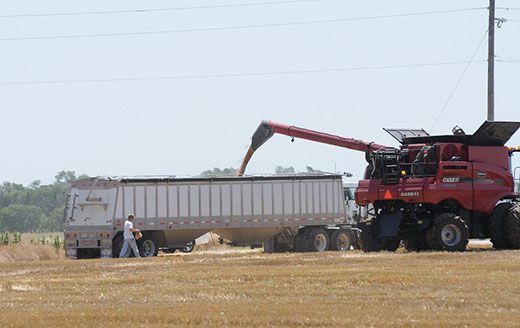Plant pathologist Barbara Valent named to National Academy of Sciences
Kansas State University plant pathologist Barbara Valent has earned membership in the prestigious National Academy of Sciences, becoming the first scientist at K-State to earn the honor for original research conducted while at the university.
The National Academy of Sciences, or NAS, is considered the country’s leading authority on matters related to science and technology. As a member, Valent, a university distinguished professor, joins a group of scholars that is often sought out to provide independent, objective advice to national leaders on problems where scientific insights are critical.
The academy was established by an act of Congress and signed by President Abraham Lincoln in 1863. Today, the academy has 2,405 members in the U.S. and 501 more internationally. Academy members are nominated and then elected in recognition of their distinguished and continuing achievements in original research.
"Being elected to the NAS is the ultimate recognition of scientific excellence, expertise and achievement in the U.S.," Valent said. "Even as a graduate student, you realize that being a member of the NAS is one of the highest honors a scientist can receive. It’s something that always stands out there as a goal."
Valent has worked on understanding blast disease, caused by a fungus known to scientists as Magnaporthe oryzae, for more than 40 years. In the last decade, her work has focused on wheat blast, a dangerous new disease in which the fungus is capable of taking out entire wheat fields. Valent has led a research team that is driving the world’s most comprehensive studies on wheat blast to keep it out of the U.S.
In addition to her active research program, Valent has taught three K-State graduate classes and advises doctoral students and postdoctoral fellows in her lab.
"Being a member of the NAS is not just an honor but also an opportunity to impact scientific issues important for the well-being of the nation and the world," Valent said. "My expertise in fungal pathogens of important grain crops allows me to contribute to national and global food security issues including and beyond wheat blast."



